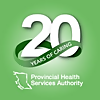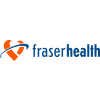Staff Diagnostic Neurophysiology Technologist, EEG
BC Children’s Hospital
Vancouver BC
- The Staff Diagnostic Neurophysiology Technologist performs digital and analogue Video / Electroencephalograms (EEG) procedures in the laboratory and at the bedside of critically ill patients;
- performs Evoked potential procedures (EPs), Electromyography & Nerve conduction studies (EMG / NC), Ambulatory Monitoring (AM), non-surgical intensive monitorings (IM), basic intraoperative somatosensory (SEP), Motor (MEP) monitoring, and rhizotomy;
prepares preliminary test reports for use in medical diagnosis; participates in student training program.
What you'll do
Performs analogue and digital EEG recordings. Caters EEG electrode placement, recording parameters, and stimulation techniques to age of patient being testes from pre-term to young adults.
Interprets EEG results and implements alternative methods or adjusts controls to obtain optimal recording. This may include appropriate control setting changes on the machine, use of extra electrodes, and use of activation procedures.
Writes a comprehensive patient history with accumulated information from the patient and / or parent, and the medical chart documents.
Determines the presenting problem and directs test accordingly. Explains the procedure to the patient and family members present and answers any questions.
During EEG testing asks patient questions to demonstrate responsiveness and documents patients clinical activities during a seizure or other patient emergent situation.
Reviews data collected during event. Provides hard copy print out and factual report of clinical and electrical events. Documents video times for archiving and completes appropriate forms.
Recognizes artifact (physiological or environmental). Documents, eliminates or takes proper measures to monitor the artifact.
Applies EOG, EKG, EMG and appropriate transducers to monitor physiologic activities.
Performs ambulatory monitoring. Applies electrodes and programs hard drive to collect with appropriate parameters as determined by the presenting history.
Disconnects patient, transfers collected data to hospital network and reformats hard drive. Analyses and classifies EEG data.
What you bring
- Graduation from an approved Electrophysiology Course with certification or a hospital-based training program from an approved institution or two years recent experience including one year recent paediatric experience or an equivalent combination of education, training and experience acceptable to the Hospital.
- Certification in cardiopulmonary resuscitation.
- Registration with the Canadian or American Board of Registration for Electroencephalograph Technologists or T.).
Plus one additional registration achieved in one of the following areas :
- Registration with the Canadian or American Board of Registered EMG Technologists (RT(EMG) or T.).
- Registration with the American Board of Registered Evoked Potential Technologists T.).
- Registration with the American Board of Registration in Intraoperative Monitoring (CNIM).
Skills and Experience
- Physical ability to perform the duties of the job.
- Ability to communicate effectively both verbally and in writing.
- Ability to operate related equipment.
- Ability to work independently and to organize and prioritize workload.
- Ability to teach.
- Commitment to develop knowledge and understanding of legislative obligations and provincial commitments found in the foundational documents including Truth & Reconciliation Commission’s Calls to Action (2015), In Plain Sight (2020), BC's Declaration on the Rights of Indigenous Peoples Act (2019), United Nations Declaration on the Rights of Indigenous Peoples (UNDRIP), Reclaiming Power and Place Missing and Murdered Indigenous Women & Girls Calls for Justice (2019), the Declaration Act Action Plan and Remembering Keegan : A First Nations Case Study and how they intersect across the health care system.
- Commitment to upholding the shared responsibility of creating lasting and meaningful reconciliation in Canada as per TRC (2015) and BC's Declaration on the Rights of Indigenous Peoples Act (2019).
- As a strong asset for consideration, we are looking for our successful candidate to have : Knowledge of social, economic, political and historical realities of settler colonialism on Indigenous Peoples and familiarity with addressing Indigenous-specific anti-racism, anti-racism and Indigenous Cultural Safety and foundational documents and legislative commitments (The Declaration Act, the Declaration Action Plan, TRC, IPS, Remembering Keegan, etc.).
What we bring
Every PHSA employee enables the best possible patient care for our patients and their families. Whether you are providing direct care, conducting research, or making it possible for others to do their work, you impact the lives of British Columbians today and in the future.
That’s why we’re focused on your care too offering health, wellness, development programs to support you at work and at home.
- Join one of BC’s largest employers with province-wide programs, services and operations offering vast opportunities for growth and development, and recognition programs that honour the commitment and contribution of all employees.
- Access to professional development opportunities through our in-house training programs, including +2,000 courses, such as our San’yas Indigenous Cultural Safety Training course, or Core Linx for Leadership roles.
- PHSA is a remote work friendly employer, welcoming flexible work options to support our people (eligibility may vary, depending on position).
- Access to WorkPerks, a premium discount program offering a wide range of local and national discounts on electronics, entertainment, dining, travel, wellness, apparel, and more.
Requisition : 165065E
As per the current Public Health Order, full vaccination against COVID-19 is a condition of employment with PHSA as of October 26, 2021.
What we do
BCCH) provides care for the most seriously ill or injured children and youth from across British Columbia.
The Provincial Health Services Authority () plans, manages and evaluates specialized health services with the BC health authorities to provide equitable and cost-effective health care for people throughout the province.
Our values reflect our commitment to excellence and include : Respect people Be compassionate Dare to innovate Cultivate partnerships Serve with purpose.
Learn more about PHSA and our programs :
PHSA and BCCH are committed to employment equity, encouraging all qualified individuals to apply. We recognize that our ability to provide the best care for our diverse patient populations relies on a rich diversity of skills, knowledge, background and experience, and value a safe, inclusive and welcoming environment.
PHSA is committed to equity in our hiring and employment practices. With learning and compassion, we are addressing existing inequities and barriers throughout our systems.
PHSA is seeking to create a diverse workforce and to establish an inclusive and culturally safe environment. We invite applications and enquiries from all people, particularly those belonging to the historically, systemically, and / or persistently marginalized groups identified under the Human Rights Code.
One of PHSA’s North Star priorities is to eradicate Indigenous-specific racism, which includes dismantling barriers to health care employment at every level.
We welcome Indigenous individuals to apply and / or contact the Sanya'kula Team (Indigenous Recruitment & Employee Experience) for support at .
Indigenous-specific anti-racism initiatives are rooted in addressing the unique forms of discrimination, historical and ongoing injustices, and marginalization faced by Indigenous peoples.
These initiatives align with an Indigenous rights-based approach, recognizing the inherent rights and self-determination of Indigenous communities.
PHSA must uphold legislative obligations and provincial commitments found in the foundational documents such as including Truth & Reconciliation Commission’s Calls to Action (2015), In Plain Sight (2020), BC's Declaration on the Rights of Indigenous Peoples Act (2019), United Nations Declaration on the Rights of Indigenous Peoples (UNDRIP), Reclaiming Power and Place Missing and Murdered Indigenous Women & Girls Calls for Justice (2019), the Declaration Act Action Plan and Remembering Keegan : A First Nations Case Study.




